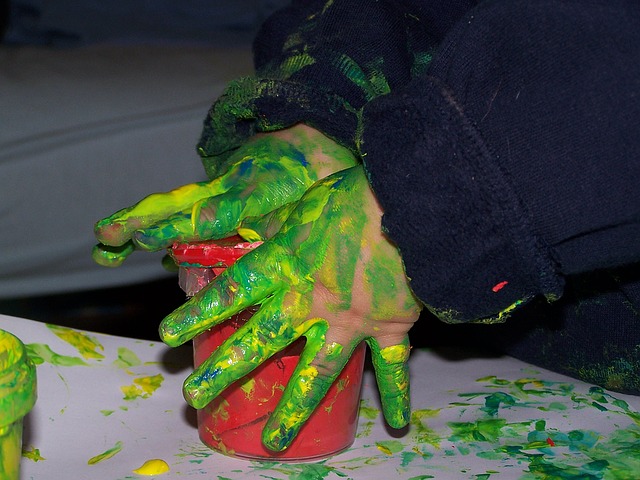WHO AM I? These are the three most important words a human being can ask themselves. Interestingly, most two and three-year-olds know the answer to this question. At ages 2 and 3, you can see the child’s uniqueness, dazzling personality, and uninhibited quirkiness that makes you know your child is something special.
And then one day….the light starts dimming. The pressure to fit in with their school peers and the sheer unappreciation of their uniqueness eventually mold them into everyone else. This gets worse in the teenage years when fitting in and living according to a certain standard is expected. By the time your child is of legal age, they have completely lost their sense of self.
But this doesn’t have to be your child’s reality. Here, we outline seven clever ways to help your child discover and maintain their sense of self. The secret is to start early and continue doing so throughout their childhood and teenagehood, so they don’t forget for a second who they are.
Table of Contents
1. Give them a ‘space’ to call their own
In a world where teachers, media, and peers tell your child who they are, it’s easy for their personality to get stifled. One of the ways to combat that is to provide a personal space where your child can go to process, recharge, and be themselves. This could be their own bedroom, a corner in the living area, or a cubby house. Let the child own this space, decorate it to their liking and do what they like inside there. Since it’s a personal space with no judgment or supervision, the child will be free to express themselves in art, music, or whatever else makes their hearts come to life. In this little ‘space,’ film mogul Tyler Perry discovered they can write scripts and imagine unbelievable stuff that made him who he is now.
2. Encourage exploration
A big part of knowing who you are is discovering what you like to do. Your purpose, interests, hobbies. While most kids know what they like as babies, their sphere of influence and exposure is minimal. As a parent, it’s your job to expose them to as many things as possible throughout their childhood and see if something captures their heart.
Take the child to different art events like music shows, art theatres, and even dance productions. You can also take them out to watch different sports in stadiums and explore different sports even if you don’t understand them. Be open to hearing what they would like to see and take them as soon as you can.
As you explore different things together, beware of projecting your insecurities and biases onto the child. Maybe your parents told you that dancing was for girls or martial arts was for Asians. Allow your child to love what they love without judgment, even when you don’t agree with it.
3. Invest in their unique interests and talents

Once you identify what your child likes to do, it’s crucial to invest in it. Most kids do not pursue their interests and talents because nobody encouraged them to do so or shoved them in the right direction.
Does your child always have a pencil and drawing pad at home? Enroll them in an art class. Do they break into dance every time they hear music? Maybe you should consult a dance teacher. Maybe they are good at football, or it fascinates them, you can enroll them in a club. Pay special attention to what makes your child happy, what makes them unique, and what they retreat to when alone, and then encourage them to do it more.
4. Use a TV show for reinforcement
The influence of media, especially cartoons, when kids are growing up cannot be underestimated. Sometimes, the child may not believe what you are saying because you are the one saying it. A sneaky trick that always works is to use one of their favorite cartoons or shows to reinforce what you have been saying and bring the point home.
Let’s say you want your child to appreciate and maintain their uniqueness. The popular kid’s animation show LEGO Ninjago has a perfect plot for that. One of the team members, Zane, is ‘different,’ literal, and sees the world differently. At first, the other ninjas laugh and make fun of his difference, but they soon learn that his uniqueness makes him special.
As your child watches this show, they see themselves in Zane and start to appreciate who they are too. Once the show is over, discuss how some of their unique traits are superpowers and make them better people.
5. Explore your own interests
As a parent, you are your children’s greatest influence, and they look to you to find themselves. By looking at you, they can learn how to neglect their dreams and interests or go after them and live their lives to the fullest. So take time to live out your dreams even in the face of busy work life and parenting. Spend a few hours every weekend doing what you love and tag your kid along often. Let them see you in your element doing what you love. You can also talk to them about your dreams and what you like to do during family dinners.
That said, be sure to let the child know that those are your interests, and they are free to find their own. If they enjoy what you like and would like to join you, well and good, but it’s not a must.
6. Support style decisions
Another aspect that makes a person is style- hair, clothes, and shoes. Style is an expression of who you are, and this is as true for children as it is for adults. Allow your child to choose their clothing from a young age, even if it looks silly and inappropriate to you. Take them along to shop so they can select their clothing and shoes. Allow the child to pick their hairstyles when schools close and try not to stifle or judge their choices.
Famous designers and fashionistas like Donatella Versace found their knack for fashion as children. Her parents’ confidence in her awkward style and choice of outfits made her the world-class designer she is today. If you trust their decisions in simple things like clothing, they can develop the confidence to explore bigger things because they trust their own decisions.
7. Allows the child to take risks and make mistakes

As a disclaimer, it’s completely normal to feel like you need to protect and shield your child from this dog-eat-dog world. Unfortunately, doing so will only make them incompetent and weak people who have no confidence in their abilities or strengths. What’s more, you cannot protect the child forever, and one day they will have to deal with the real world.
So, what do you do? Try to let them make mistakes and learn from them as early as possible. Let the child pour their juice in the morning. If she pours it all over the flour, watch them as they figure out how to solve that problem. You will be surprised to see them get a rug and clean up. Let your child make their own cereal and mess it up. Next time they will pour less milk in until they figure out the right consistency.
By allowing your child to learn through mistakes and take risks, you build confidence in them. They learn that it’s okay to fail once or twice, but eventually, I will get it right. They learn that they are able and competent to do this and that calling mom is not essential. They learn to solve their issues and only come to you after trying their best.
Helping your child discover who they are and what they are capable of is not a one-day affair. It’s a continuous process of encouraging them to explore new things and supporting them every day. It’s about stepping back sometimes and letting them find their inner strength. But most importantly, it’s about being their best friend, their biggest supporter, and cheerleader and being there always to see and bring out what they can’t see themselves.



